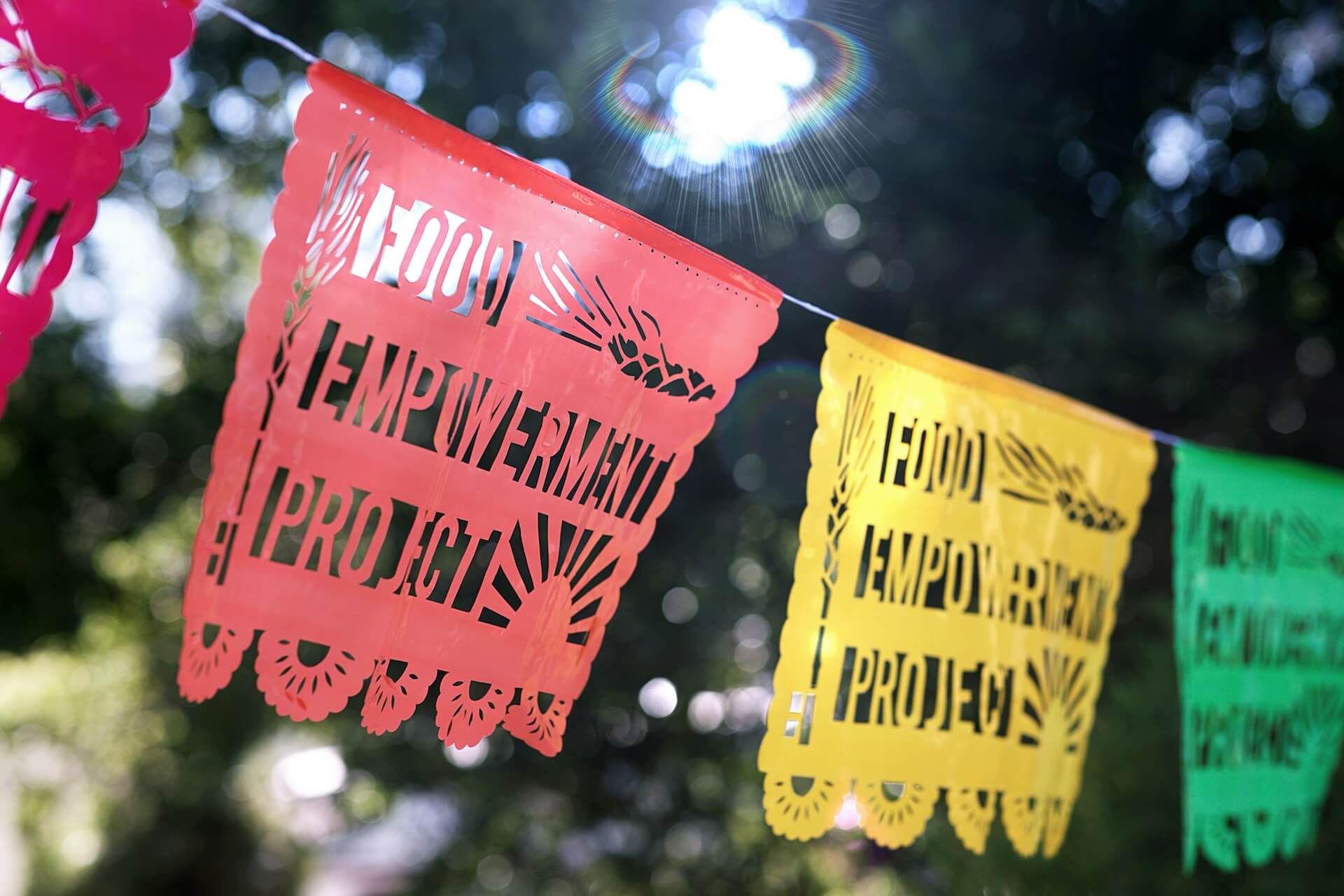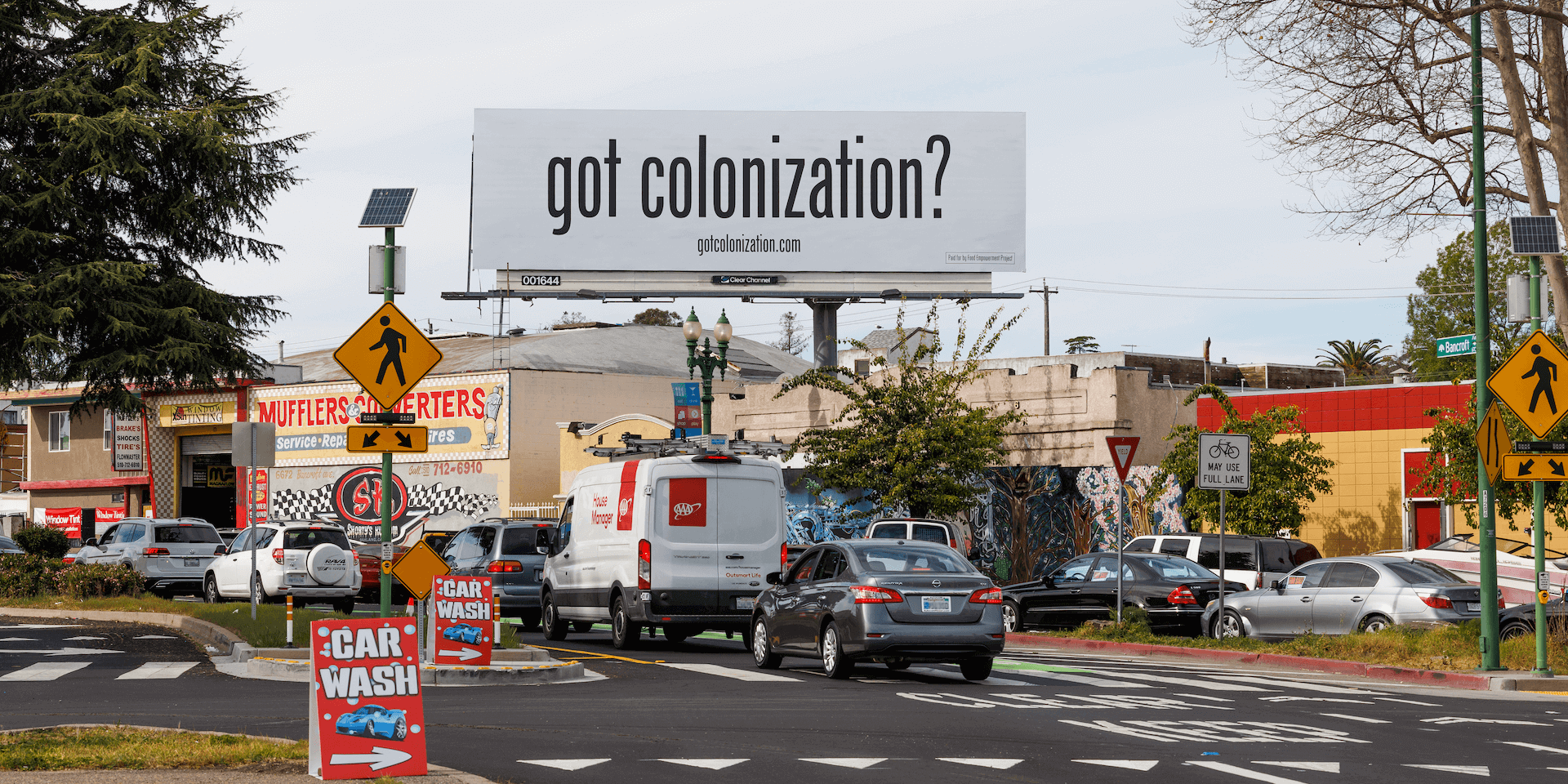A catalyst for change: The empowering vision of lauren Ornelas
From the very beginning of her career, lauren Ornelas established herself as a grassroots leader. From starting the first animal rights group in Texas, to conducting investigations of pig farms and dairy farms that led to corporate wins, she has a three-decade track record of successful animal advocacy.
Despite her many victories, Ornelas knew that her work was only beginning. She had a vision that was more ambitious, more expansive than many other animal rights activists at the time, and one she credits to her upbringing.
“I felt like I saw things differently. I had grown up with a different lived experience than many of the vegans that I’d met—one where, even though I wanted to be vegetarian when I was young, financially we couldn’t do it. I had to eat what people gave us. I was somebody who grew up with an understanding of farm worker justice—to me, these weren’t separate issues. When I talked about what’s happening to non-human animals, I couldn’t not talk about what’s happening to farm workers. I couldn’t not talk about what was happening [to produce] chocolate.”
After receiving years of pushback from fellow animal rights activists, Ornelas set out on her own in 2007 and launched the Food Empowerment Project.

Courtesy of Food Empowerment Project
“As a woman of color, as a Xicanx—I call myself Xicanx, the X at the beginning to acknowledge my indigenous roots of the Americas and then X at the end in solidarity with the trans community, but also an X as a rejection of the patriarchal language of Spanish—I kept trying to talk about how issues were connected.
The organization [Food Empowerment Project] was started with an understanding that our mission wasn’t a ‘this or that.’ It was an and. It was all of this together. All of these injustices are under the umbrella of food, and we can connect these issues, and we can be stronger against all these various systems of oppression which are really connected when you look at all of them.
When you look at food apartheid, you have Black, Brown, and Indigenous communities being the most impacted. A lot of it’s founded on racism, it’s founded on not feeling like Black, Brown, and Indigenous people deserve the same wages, and it’s a legacy of racism where our people don’t have generational wealth—you know, our land was taken from us. It’s similar to if you look at farm worker justice, it’s similar to if you look at what’s happening in western Africa and Brazil for cacao. The same thing ties them together.
With Food Empowerment Project, it was really important to me to say ‘Hey, vegans, we need you to be vegan for the animals. We absolutely need that; it’s important. The animals need us. But let’s not dismiss or ignore the other injustices in the food industry. We’re not asking you to drop what you do for the animals, but don’t act as if these other abuses aren’t taking place.’ And for people who do understand these issues to say hey, look, these same systems are also oppressing non-human animals, and if you have the privilege, do something.”
In 2018, F.E.P. successfully led an effort to change California’s “50-mile” rule that negatively impacted farm workers’s children. The organization’s commitment to the human side of food justice runs deep; its website advocates for and educates about slaughterhouse workers, child laborers, CAFO workers, and produce harvesters, among others. It’s not always the case that an animal advocate will also stick up for avocado packers, but lauren Ornelas has made it her life’s work. There is no food safe from critique, no veggie too precious to question or company too popular to ignore. Amy’s Kitchen, for instance, has long been a hallmark of plant-based diets, but in the wake of labor abuse allegations, Food Empowerment Project has thrown its weight fully behind the slighted workers.
“We loved Amy’s. You know, we were there on the opening day of their drive through their fast food restaurant, and their food was amazing. But again, like with non-human animals, it’s not a matter of what tastes good. It’s a matter of contributing to an injustice or not. I found a report talking about how at this one pig farm the workers were (rightfully) complaining about the fact that the people who spoke Spanish were not given bathroom breaks like the other employees were, and in the same paperwork when they’re talking about their treatment, they also talk about what’s happening to the pigs… using their voices for both.”
The organization fights food apartheid by working with communities—but only if they want help. F.E.P. first conducts a neighborhood assessment to see how dire the problem is. Just how limited is the access to healthy foods? After the assessments are completed, they conduct focus groups, asking community members to identify barriers and brainstorm potential solutions. Public officials are then informed of the findings so that policy changes can be made; some of F.E.P.’s reports on access to healthy foods have been cited by the United Nations Human Rights Committee!
F.E.P. also offers cooking resources to those who want to eat ethically without forgoing authentic cultural flavors. They offer a Vegan Mexican Food guide in English and Spanish, a Vegan Filipino Food guide in English and Tagalog, a Vegan Lao Food guide in English and Lau, and most recently a Vegan Chinese Food guide in English and simplified Chinese. Other resources include a general recipe database, a how-to on growing your own food, and a ranked list of which chocolates are produced ethically. The chocolate list has about a thousand different brands, always growing as F.E.P. contacts and investigates more manufacturers, and is conveniently available as an app.
In certain ways, Ornelas believes that her Mexican roots make it easier to normalize plant-forward values:
“Many of us are indigenous to the Americas, and we were impacted by colonization. We are able to easily point to the fact that Columbus brought the cows over. So something like dairy is absolutely not indigenous to who we are. This is why we push back on the term ‘lactose intolerant’ and instead call it ‘lactose normal.’ It’s not natural to consume the milk of another species. Lactose ‘intolerance’ implies there’s something wrong with us, and at the end of the day, there’s nothing wrong with us. It’s a product of colonization. And I see it as our body’s fighting that part of colonization.”
Many pre-colonization foods were plant-based—not just The Three Sisters, but also chilies, tomatoes, nance, and chia—and while her Mesoamerican ancestors weren’t fully vegan (e.g., iguana eggs), they definitely weren’t slaughtering cows or eating eight ounces of meat in one sitting.
“You know, our culture is about celebrations and colors and music and dance and art. And so I feel like food is a part of that. You don’t lose anything except for animal cruelty when you remove that aspect of what we eat. And again, I’d say a lot of that food that we eat today is from colonization.”

Courtesy of Food Empowerment Project
That legacy of colonialism is still present in the United States today, Ornelas says, in the form of racism.
“Racism always is going to be othering somebody, so to speak, and until that is gone, I don’t know that a fully vegan world would ever exist. So I feel like that has to happen first. [Racism is] basically saying that the one who has the most power can do whatever they want to another being.”
And that’s decidedly not vegan.
Part of veganism’s racism comes down to simple representation. As we know, veganism, along with other justice movements like environmentalism and animal rights, have long been white-coded and white-washed. Ornelas thinks these justice movements would resonate more with people if they saw people who look and act like them. Flipping people’s dinner plates requires that we first flip their hearts and minds. Veganism needs to open new doors and show people how it relates to them, their values, and their heritages:
“I think that food is a strong motivator for change and empathy and understanding. Sometimes the way to change people’s hearts needs to be community-based, which often gets overlooked and underinvested in. Because if I’m a brown person living in an impacted community, in a food apartheid community, and I am worried about my kid and their health, that’s reaching their heart. Doing that kind of work gets to somebody’s heart. It’s hard to do that work, so that work needs to be supported. It’s not just a matter of statistics, it’s a matter of people.”
From supporting boycotts to hosting school supply drives to helping SNAP users navigate farmers markets, Food Empowerment Project knows it’s a matter of people. The path to a more just and sustainable food system lies in empathy, education, and connection. Give people knowledge about food, give them a reason to care, and you give them the power to do better. You give them the power to flip it.